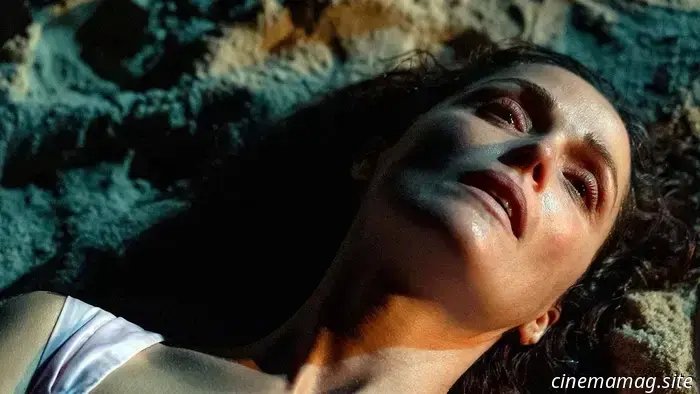
She Has Anger Within Her: Exclusive Interview with Mary Bronstein, Writer-Director of If I Had Legs I’d Kick You
Robert Kojder speaks with Mary Bronstein, the writer and director of If I Had Legs I’d Kick You…
After a lengthy hiatus since her last feature film in 2008, writer and director Mary Bronstein returns with the intense psychological drama If I Had Legs I’d Kick You, which portrays the anxiety of a mother with a sick child on the brink of a breakdown. The film is fully immersive, maintaining an edge-of-your-seat tension throughout, thanks to an unforgettable performance by Rose Byrne, often captured in close-ups for heightened emotional impact—even during brief moments of relief as she savors a gruesome slice of pizza. This film is deeply personal, resonating with authenticity in every scene, setting, and interaction.
After premiering at Sundance earlier this year, the film was recently showcased at the Chicago International Film Festival, where Mary Bronstein participated in a post-screening Q&A. Having viewed the film prior, I was fortunate to have a conversation with her before the screening. As a physically disabled individual who needs considerable care (though not in the same way as the film's young character), our discussion about the film’s material and the reactions from those experiencing illness or disability proved enlightening. Mary, having once been a caregiver to a similarly ill child, skillfully navigates complex storytelling through the lens of motherhood. This depth is bolstered by her background in psychotherapy, further enriching the narrative.
We also discuss the necessity for mothers to seize fleeting moments, the preparation of the ensemble cast—featuring a notable performance from Conan O’Brien—and the origins of the film’s striking title, among other topics. Mary is articulate and thoughtful in her responses, demonstrating that she is exceptionally suited to tell this story. Enjoy the interview below:
It’s a pleasure to meet you. I thought the film was fantastic.
Thank you! It’s great to meet you too.
As someone born with a muscular condition requiring ongoing caretaking, I know I’ve likely driven my mother to frustration at times.
[Shared laughter]
You've created something genuine that reflects not just the experiences of mothers but also those on the receiving end of care. Did you consider how individuals with illnesses or disabilities might respond to the film?
Absolutely, and I'm glad to hear that you found the film resonates with you. The inspiration for this story came from a real experience with my daughter, who was very ill and utilized a machine that, in the film, takes on an almost omnipresent, oppressive role. She used that for a year, while her illness lasted even longer, and I experienced that as a caretaker.
Before I pursued a career in the arts, I earned a master’s degree in psychology and worked for about eight years in the New York City public hospital system, providing play therapy and psychoeducation to severely ill and profoundly disabled children. I spent about two years on a pediatric rehabilitation floor, getting to know many children who learned to walk after being paralyzed or partly paralyzed. Some often stayed in the hospital for extended periods, sometimes without their parents, and I assumed a caretaker role outside of those professional boundaries.
While writing the film, I took special care to protect my daughter's privacy. I had a discussion with her about how the movie would be told from the mother's viewpoint and include aspects of her experience, but clarified it wouldn’t be her story. I stressed that whenever she wishes to tell her story, she can do so herself. During the writing and filming process, I reflected on my experiences with sick children in the hospital, alongside my own journey, creating a cohesive narrative.
I’ve also encountered individuals with disabilities at screenings who expressed sentiments similar to yours, saying things like, “I’m going to call my mom and apologize, but I also feel seen.” One woman mentioned she had been very ill as a child and hadn’t considered her mother's struggles until now, prompting her to reach out to her mother while in tears. Such feedback is vital for me, as I want to honor the experiences of others without inappropriately portraying their stories. As a mother, however, that perspective is one I can convey.
That’s a thoughtful response; I appreciate it. Another strong element of the film is its portrayal of anxiety escalating toward a breakdown. Did you film it in chronological order to reflect that?
I wish we could have! We actually shot out of order. The scene where Linda (Rose Byrne) reaches her breaking point while in the car with her husband—she insists they will never return to normal—was filmed on one of the first days before Rose had gone through the rest of the film's emotional arc. This speaks to her remarkable talent and preparation. Unfortunately, shooting chronologically would have been a gift.
Rose's performance is incredible throughout the film. One of my favorite moments is her brief expression of relief while eating pizza early on; it captures a genuine emotion. Could you elaborate on filming that scene and Rose’s experience eating on camera?
I have her eating quite a bit on screen, and






Other articles
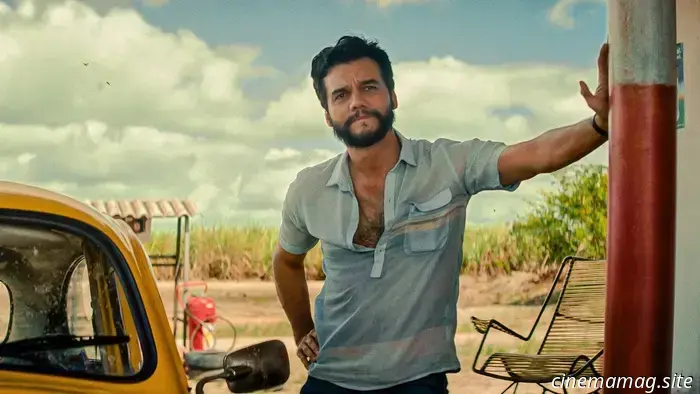 Wagna Moura is the undercover operative in the new trailer for the highly praised crime epic.
Neon has released a new trailer for their highly praised drama The Secret Agent, which has impressed audiences at various festivals with its story starring Wagner Moura (Civil War) focusing on political themes...
Wagna Moura is the undercover operative in the new trailer for the highly praised crime epic.
Neon has released a new trailer for their highly praised drama The Secret Agent, which has impressed audiences at various festivals with its story starring Wagner Moura (Civil War) focusing on political themes...
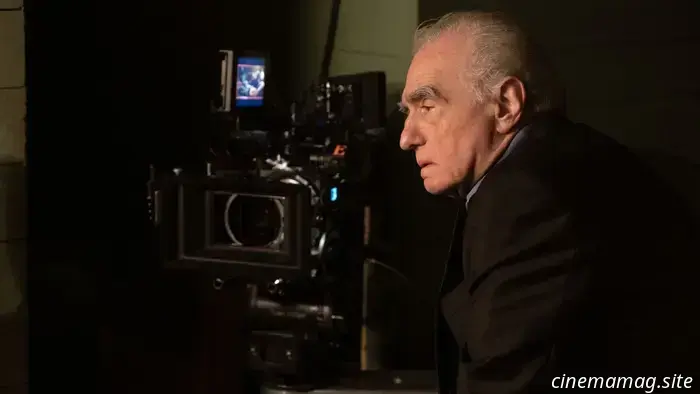 New to Streaming: Mr. Scorsese, The Ideal Neighbor, and My Grand Bold Beautiful Adventure
Every week, we showcase the significant titles that have recently been released on streaming services in the United States. Take a look at this week’s picks below and past compilations here. My Big Bold Beautiful Journey (Kogonada) A common theme in Kogonada’s films is his unique interest in minimalistic, deeply human character explorations set against carefully crafted backdrops.
New to Streaming: Mr. Scorsese, The Ideal Neighbor, and My Grand Bold Beautiful Adventure
Every week, we showcase the significant titles that have recently been released on streaming services in the United States. Take a look at this week’s picks below and past compilations here. My Big Bold Beautiful Journey (Kogonada) A common theme in Kogonada’s films is his unique interest in minimalistic, deeply human character explorations set against carefully crafted backdrops.
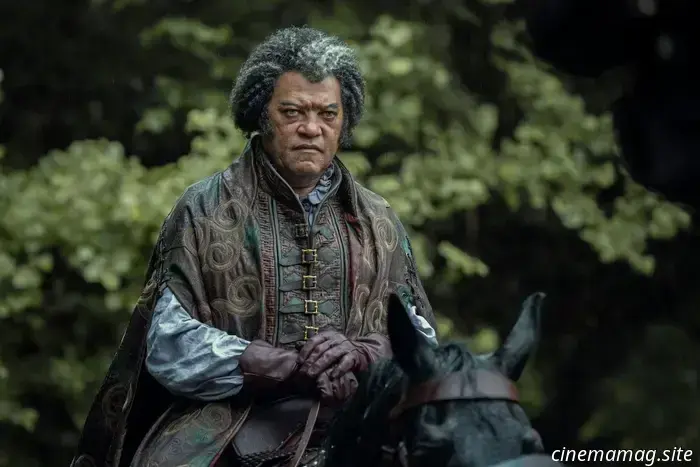 The trailer for season 4 of The Witcher features Laurence Fishburne as Emiel Regis.
Netflix has unveiled a new character trailer for the fourth season of its fantasy series, The Witcher, highlighting Laurence Fishburne’s enigmatic barber-surgeon, Emiel Re.
The trailer for season 4 of The Witcher features Laurence Fishburne as Emiel Regis.
Netflix has unveiled a new character trailer for the fourth season of its fantasy series, The Witcher, highlighting Laurence Fishburne’s enigmatic barber-surgeon, Emiel Re.
 Canadian drama The Granville Girls is set to arrive on Netflix.
Following the success of North of North, Netflix has commissioned a new Canadian drama titled The Granville Girls, created by Adriana Maggs (Frontier) and produced by Shafte, the company behind Murdoch Mysteries.
Canadian drama The Granville Girls is set to arrive on Netflix.
Following the success of North of North, Netflix has commissioned a new Canadian drama titled The Granville Girls, created by Adriana Maggs (Frontier) and produced by Shafte, the company behind Murdoch Mysteries.
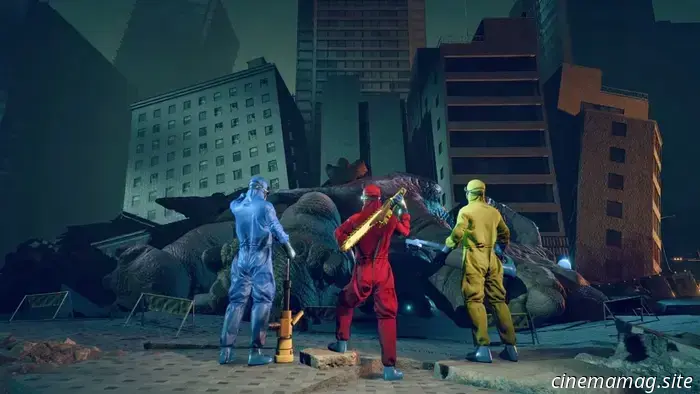 Kaiju Cleaner Simulator set to launch in early 2026.
Indie developer One More Time has announced Kaiju Cleaner Simulator, a cooperative simulation game for up to 4 players, which centers on the extensive clean-up that occurs once the heroes have dealt with the monsters menacing the…
Kaiju Cleaner Simulator set to launch in early 2026.
Indie developer One More Time has announced Kaiju Cleaner Simulator, a cooperative simulation game for up to 4 players, which centers on the extensive clean-up that occurs once the heroes have dealt with the monsters menacing the…
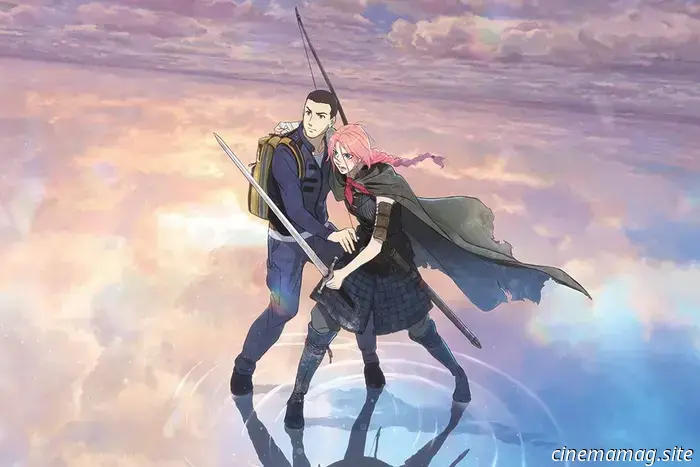 NYFF Review: Scarlet Discovers Mamoru Hosoda's Simplistic Adaptation of a Classic Story
Over the span of twenty years creating animated films, director Mamoru Hosoda has delivered both personal stories such as Wolf Children and ambitious projects like the sci-fi extravaganza Summer Wars. In 2019, his family fantasy Mirai received an Academy Award nomination, marking it as the first anime feature outside of Studio Ghibli to earn this honor. However, instead of
NYFF Review: Scarlet Discovers Mamoru Hosoda's Simplistic Adaptation of a Classic Story
Over the span of twenty years creating animated films, director Mamoru Hosoda has delivered both personal stories such as Wolf Children and ambitious projects like the sci-fi extravaganza Summer Wars. In 2019, his family fantasy Mirai received an Academy Award nomination, marking it as the first anime feature outside of Studio Ghibli to earn this honor. However, instead of
She Has Anger Within Her: Exclusive Interview with Mary Bronstein, Writer-Director of If I Had Legs I’d Kick You
Robert Kojder speaks with writer-director Mary Bronstein about her film If I Had Legs I’d Kick You… After making her first feature-length film in 2008, Mary Bronstein is returning with the…
